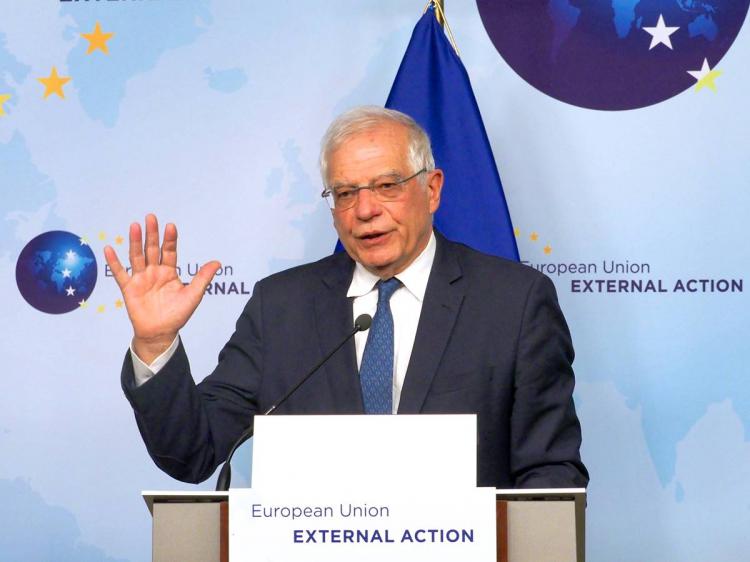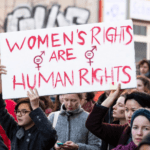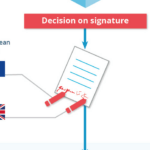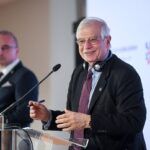The ninth U.S.-EU Energy Council met in Washington, D.C. on February 7, chaired by U.S. Secretary of State Antony Blinken, U.S. Secretary of Energy Jennifer M. Granholm, EU High Representative/Vice President Josep Borrell Fontelles, and European Energy Commissioner Kadri Simson. The Ambassador of France to the United States Philippe Etienne represented the Presidency of the Council of the European Union (EU).
Mindful of the rapidly changing energy landscape and the continued risks to energy security, including cybersecurity of energy infrastructure, the U.S.-EU Energy Council works to enhance energy security and promote energy diversification. The parties emphasised that accelerating the just energy transition to a net-zero future will support the mitigation of energy market fluctuations and facilitate access to affordable and reliable energy. The Council discussed the urgency for action to address the gas supply situation in Europe and to ensure gas supply to Ukraine.
 Energy Consumption: Expectation vs Reality Energy Consumption: Expectation vs Reality
|
Bolstering energy security in the EU and its neighbourhood, including in Ukraine and the Western Balkans
The Council reaffirmed the importance of the United States and EU working together on our mutual net-zero energy transition, as countries increase their climate ambitions to ensure that consumers have secure access to affordable and reliable energy. The EU and the United States affirmed their commitment to proactively cooperate to address any potential risks related to energy supply in the EU and its neighbourhood. This cooperation endeavours to focus on avoiding energy and resource supply disruptions and improving diversification of energy suppliers, fuel types in line with our net zero targets, and means of transport.
The Council underlined that competitive and transparent global energy markets remain critical to ensuring a reliable, affordable, and secure energy supply for Europe. As we address geopolitical and climate impacts on current energy markets, the EU and the United States intend to work together so that global liquefied natural gas markets have the capacity to provide additional and diversified supplies in case of pipeline gas disruptions in the short term as countries move away from fossil fuels and towards a sustainable net-zero future. The EU and the United States also recognise the growing cyber related threats to energy infrastructure and plan to continue related cooperation including in the context of the synchronization of the Baltic States’ electricity networks with the Continental European Network.
The Council reiterated that it is unacceptable to use energy supply as a weapon or geopolitical lever. This conviction underpinned the Council’s support for enhancing the resilience and energy security of Eastern partners, such as the Republic of Moldova and Ukraine, including through reverse gas flows. Recognizing current geopolitical tensions, the United States and the EU discussed intensifying cooperation in the short-term to ensure sufficient energy supplies for the EU and its neighbourhood.
The Council affirmed that Ukraine continues to be a key partner of both the EU and the United States and expressed firm support for a strong and resilient Ukraine. It emphasised that energy security is vital to a sovereign Ukraine. The Council reiterated that Ukraine is a strategic gas transit country for the EU and should continue to promote the integration of Ukraine into the EU’s energy market, with the goal of improving Ukraine’s energy security, accelerating its decarbonisation and clean energy transition, and enhancing its potential for clean energy exports. The Council expressed continued support for exploring new gas transit routes and capacity from the EU to Ukraine. The Council emphasised the importance of continuing to support the synchronization process of the electricity networks of Ukraine and the Republic of Moldova with the Continental European Network. The Council dedicated itself to new efforts to invest in and support Ukraine’s decarbonisation efforts and relevant infrastructure.
The Council reaffirmed the need for transparent, robust, and independent institutions in Ukraine’s energy sector, in particular the energy market regulatory authorities and financial markets authorities, including the State Nuclear Regulatory Inspectorate of Ukraine. It highlighted that strong corporate governance and supervisory board autonomy without political interference are fundamental components to national energy security. As we are moving towards Ukraine’s integration with the European energy market, we will aim at strengthening corporate governance and supervisory board autonomy in Ukraine. The Council also emphasized its support for speedy energy sector reforms.
The Council reaffirmed the importance of advancing transparent, integrated, and competitive energy markets in the Western Balkans, and associated market and regulatory reforms, in line with the EU enlargement policy and obligations under the Energy Community Treaty. The Council confirmed the importance of the decarbonisation of the Western Balkans and integration of their electricity markets with the EU neighbouring electricity market. The Council should continue coordination on energy market and regulatory reforms and support for decarbonisation in the Western Balkans, in particular to phase out unabated coal for power generation and inefficient fossil fuel subsidies.
The Council also underlined the need to ensure the security of energy supply, notably through access to alternative supply sources. The Council welcomed the adoption of the Clean Energy Package and Decarbonisation Roadmap by the Energy Community, encouraged their speedy implementation, and acknowledged the importance of supporting the development of the region’s potential participation in renewable energy supply chains. The Council also emphasised the importance of close U.S.-EU coordination to foster regional cooperation.
 Transatlantic cooperation in support of Ukraine Transatlantic cooperation in support of Ukraine |
Opening remarks by High Representative/Vice-President Josep Borrell and Commissioner Simson
“Check against delivery”
High Representative/Vice President Josep Borrell :
“We convene today in an environment characterised by geopolitical turbulence, particularly in the Eastern Neighbourhood of Europe. While we meet under the gathering storm cloud, our discussions take a greater relevance.
We need to reassure people that our joint endeavour will make them safer now and more energy-secure in the future. I think that we have to send a strong message to show determination to bolster energy security for Europe and for our direct neighbours, in Ukraine and in the Western Balkans.
So, thank you for the extraordinary positive cooperation in our transatlantic relation that has become stronger. You participated in our Foreign Affairs Council and we are working with NATO and the OSCE and we are doing a lot. And we have the hope that these challenges will be overcome. […].”
More information:
EU-US Energy Council: Opening remarks by High Representative/Vice-President Josep Borrell







Leave a Reply